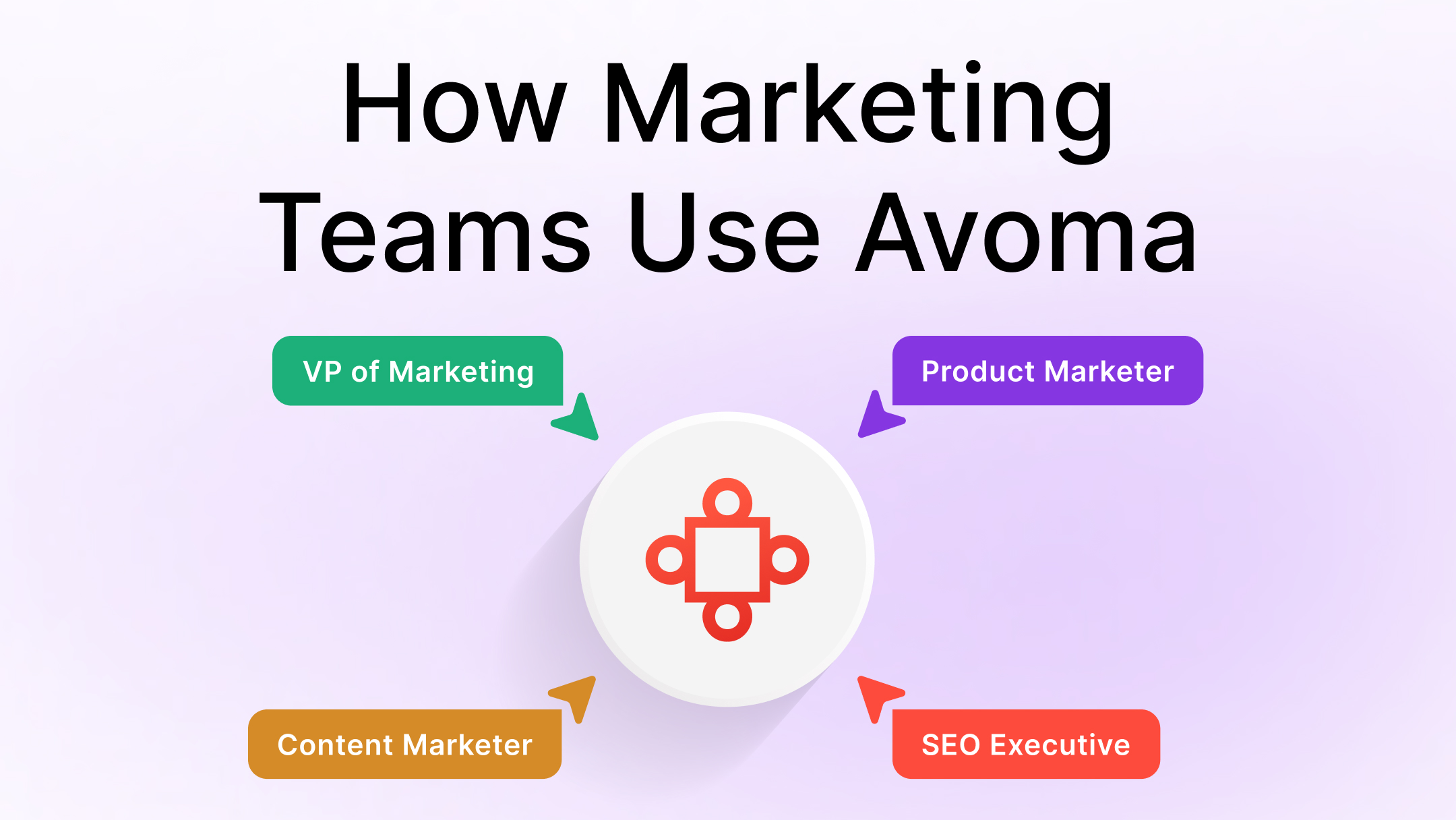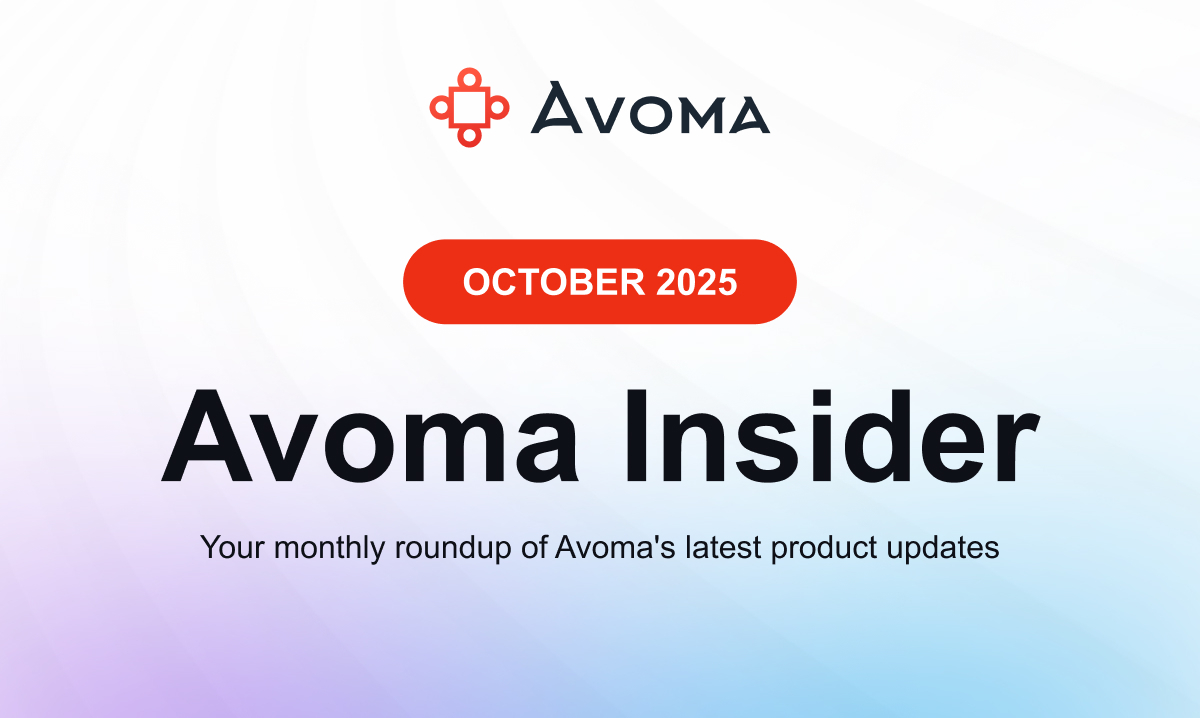Mastering sales coaching with AI to build high-performing sales team
Table of Contents:

There’s no doubt that sales teams with effective coaching consistently achieve higher win rates than those without it.
Yet, many sales leaders struggle to scale coaching, personalize feedback, and measure its true impact. Without the right approach, coaching becomes inconsistent, time-consuming, and difficult to track.
In this guide, we will show you how to turn sales coaching into a strategic advantage—one that improves rep performance, accelerates deal cycles, and drives revenue growth.
You’ll learn:
- How to tailor sales coaching to different needs – Effective sales coaching varies for SaaS, B2B, and AI-driven sales, focusing on aspects like value selling, consultative selling, and AI-powered insights.
- Using data-driven insights to improve coaching – Tracking KPIs, CRM insights, and AI-generated data helps personalize coaching, measure success, and refine sales strategies.
- Ideal coaching frequency to maximize results – Weekly or biweekly coaching sessions, combined with ongoing informal support, ensure continuous improvement and skill development.
- Using sales coaching software to enhance efficiency – Tools like Avoma automate note-taking, call analysis, and performance tracking, making coaching more scalable and effective.
- How to measure sales coaching effectiveness with key metrics – Success should be evaluated through sales performance data, behavioral changes, customer feedback, and ROI to ensure coaching delivers tangible business benefits.
Let’s get started on the journey to transform your sales team!
What is sales coaching?
Sales coaching is a continuous process where sales managers and leaders provide guidance, feedback, and skill development to help their teams improve performance, close more deals, and drive revenue growth at every stage of their careers.
It goes beyond giving instructions by offering personalized advice, resources, and feedback. This approach helps salespeople grow in their roles, overcome challenges, and achieve consistent success while promoting ongoing learning and improvement.
What is the difference between sales training and coaching?
Sales training and sales coaching serve distinct purposes and employ different methodologies. Here are the key differences:
Why is sales coaching important
Studies show that companies with strong coaching programs see higher win rates and quota attainment.
Sales coaching is super important because it helps sales teams get better at what they do. The benefits of sales coaching include boosting confidence, sharpening soft skills, and creating a winning attitude.
For example, in a B2B software company, a sales rep might struggle to understand a client's needs. A good coach would step in, review their calls, and give specific feedback on how to ask better questions and listen actively. This kind of personalized help makes a big difference!
But coaching isn't just a one-time event; it's about creating a culture where learning happens all the time. When managers treat their roles like sales coaches, they can motivate their teams and help them overcome challenges together.
How to identify sales coaching opportunities
Sales coaching is all about helping your team improve. But how do you know when and where they need that help? Let’s break it down with examples:
- Track performance metrics: Notice patterns like rep booking meetings but struggling to close deals. This may point to a need for help with closing techniques.
- Review sales calls: Listening to call recordings can reveal issues, such as reps talking too much or missing key buying signals.
Let’s say you record sales calls (using tools like Avoma or other conversation intelligence platforms). When reviewing a call, you might notice a rep dominating the conversation without giving the prospect enough time to talk. This is a perfect coaching opportunity! You can show them how to ask open-ended questions to engage prospects better. - Pay attention to feedback: If prospects frequently drop out at the same stage or give similar feedback, it could indicate gaps in your team’s approach to the sales process.
- Role-play scenarios: Mock calls with tough questions from “buyers” can highlight areas where reps need confidence or product knowledge.
- Observe behaviors: Disengaged reps or those avoiding challenges might need support in areas like objection handling or morale building.
- Analyze data: Metrics like low win rates against competitors or slow sales cycles can uncover areas for improvement.
- Ask directly: One-on-one check-ins create a safe space for reps to share struggles, like starting sales conversations or negotiating terms.
How to coach the sales team
Start by observing how they work. For example, listen to their sales calls or join a meeting with them. This helps you understand what they’re doing well and where they might need help.
Next, give specific feedback. Instead of saying, “You need to sell better,” try, “Next time, ask more open-ended questions to understand the customer’s needs.”
Set clear goals for the team and each person. In B2B sales, this might mean focusing on closing a certain number of deals or improving how they handle objections. For example, if your team struggles with pitching to decision-makers, coach them on how to identify and approach key stakeholders.
Lastly, make time for one-on-one coaching sessions. Use these to role-play real scenarios, like responding to a hesitant buyer.
Now, let’s explore what you should focus on when sales coaching techniques vary across different sales models.
Online sales coaching
With more teams working remotely or in hybrid setups, online sales coaching is now more important than ever. Using virtual tools, real-time insights, and AI, managers can coach reps effectively from anywhere. This keeps learning ongoing without disrupting daily sales work.
Here are key strategies to improve your online sales coaching:
- Use call recordings: Review recorded calls to give real-time feedback and highlight key moments for improvement.
- Monitor real-time analytics: Track KPIs live during calls to offer immediate insights and guidance.
- Build rapport virtually: Focus on tone, pace, and virtual body language to create trust.
- Create interactive sessions: Use polls and role-playing for engaging coaching.
- Personalize coaching: Offer tailored materials based on individual performance data.
- Encourage peer learning: Use team meetings for reps to share tips.
- Use of AI: Use conversation intelligence to automate feedback and analysis.
SaaS sales coaching
With fast-changing markets and complex deals, SaaS sales coaching is crucial for keeping reps sharp. By using AI insights, call recordings, and data-driven feedback, managers can help teams close deals faster and improve consistently. Here are steps for SaaS sales coaching:
- Focus on product knowledge: Ensure reps understand the software’s features, benefits, and use cases to handle customer queries effectively.
- Emphasize value selling: Coach reps to highlight how the product solves specific customer pain points rather than just listing features.
- Teach demo best practices: Guide reps on leading impactful product demos that show real-world use cases.
- Track customer engagement: Use data to monitor how leads engage with the product, and coach on how to act on those insights.
- Practice objection handling: Role-play common SaaS objections and help reps develop personalized responses.
- Measure success with renewals: Focus coaching on building long-term relationships, not just closing deals.
B2B sales coaching
In B2B sales, building strong client relationships and closing high-value, complex deals is crucial. Effective coaching helps reps refine their skills, handle long sales cycles, and drive consistent revenue growth. Focus on below points for B2B sales coaching:
- Understand client businesses: Encourage reps to research and understand client industries to offer tailored solutions.
- Focus on consultative selling: Train reps to ask questions and offer solutions based on the client’s needs and challenges.
- Teach multi-stakeholder selling: Coach on handling complex decision-making processes and building relationships with multiple stakeholders.
- Emphasize value-based pricing: Help reps position the product as a high-value solution to justify the investment.
- Develop negotiation skills: Offer coaching on effective negotiation strategies tailored to B2B contracts.
- Use CRM insights: Coach reps to leverage CRM data for smarter sales approaches.
Using AI for sales coaching
Using AI for sales coaching makes training more efficient and data-driven. AI analyzes calls, tracks performance, and provides instant feedback, helping reps improve faster. It also automates insights, so managers can focus on personalized coaching rather than manual reviews. Here's what managers should focus on when using AI for sales coaching:
- Emphasize AI benefits: Help reps explain how AI improves efficiency, decision-making, and sales performance.
- Show AI in action: Train reps on using AI tools during sales calls to drive smarter interactions.
- Focus on data-driven decision-making: Teach reps to use data insights from AI to better understand leads and tailor pitches.
- Explain AI's role in forecasting: Coach reps on how AI tools predict customer behavior and revenue outcomes.
- Handle AI misconceptions: Help reps address concerns about AI, positioning it as a tool to enhance human capabilities.
- Measure success with AI insights: Train reps to use AI-driven metrics to improve their performance.
Sales coaching programs
There are many institutions that offer formal sales coaching programs. They provide personalized guidance to the sales leaders to help enhance their team's skills and performance.
The Coaching to IMPACT program by The Brooks Group is specifically designed for sales managers and leaders trained in IMPACT Selling
RAIN Group's Sales Coaching empowers sales managers with the knowledge, skills, and tools needed to coach sellers toward top performance.
Challenger provides a framework for coaching that encourages reps to challenge customer thinking.
Similarly, various sales methodologies can help your reps follow a structured approach to sales meetings. These frameworks ensure no critical details are missed, make it easier to identify skill gaps and coaching opportunities, and set your team up for success.
What is sales coaching software?
Sales coaching software is a specialized tool designed to enhance the performance of sales teams by providing data-driven insights, real-time feedback, and personalized coaching. Think of it as a personal trainer for sales reps, providing tailored guidance and insights to help them excel.
Sales coaching software gives real-time feedback by analyzing sales activities as they happen. Managers can then offer immediate support and advice. It also enables managers to personalize coaching sessions based on each rep’s performance. This ensures that everyone gets the help they need to grow. The software uses sales call data analytics to spot trends and areas for improvement.
It mainly saves time by automating routine tasks. This lets managers focus on coaching instead of admin work.
How to use AI sales coaching software effectively
Sales coaching software helps managers provide data-driven, personalized feedback at scale. Follow these steps to maximize its impact:
1. Record and analyze sales calls
Use AI-powered call recording, transcription and note-taking software to capture key moments in conversations.

2. Score and review performance
Check automated call scoring to identify strengths and areas for improvement.

3. Pinpoint coaching opportunities
Use conversation insights to highlight trends and recurring challenges.

4. Provide targeted feedback
Share recommendations and real examples to help reps refine their approach. You can add real-time comments to conversations, making it easier to provide precise and actionable feedback.

5. Track progress over time
Monitor performance trends and adjust coaching strategies accordingly.
For self-coaching, reps can review their own call recordings, analyze feedback, and compare their performance against top-performing peers.

Additionally, reps can request coaching when needed.

How to achieve data-driven sales coaching
To achieve effective data-driven sales coaching, focus on these key areas:
- Key performance indicators (KPIs): Track essential metrics like conversion rates and sales velocity.
- Sales activity metrics: Monitor calls, emails, and demos to gauge effort.
- Customer insights: Use CRM data to tailor your approach.
- Sales forecasting: Review historical data for future predictions.
- Ongoing training: Ensure your team knows how to interpret and use data effectively.
How often to do sales coaching
Sales coaching frequency can significantly impact your team's success. Here’s a quick guide on how often to engage in coaching sessions:
- Weekly Coaching: Weekly coaching sessions keep skills fresh and address challenges promptly. Aim for at least one session per week, especially for new or struggling reps.
- Biweekly Check-ins: For more experienced salespeople, biweekly sessions can be effective, allowing time to implement feedback and see results.
- Ongoing Support: Incorporate informal, strategic coaching moments to address immediate issues, like pipeline health or specific deals.
A mix of weekly, and bi-weekly sessions is also possible. For example, a sales leader might conduct weekly sessions to refine closing techniques while also holding biweekly reviews to evaluate team performance and strategy.
How to measure sales coaching effectiveness
By combining quantitative data with qualitative insights, you can gain a comprehensive understanding of your coaching program’s success. Here are key strategies to effectively measure sales coaching effectiveness:
1. Define clear objectives and KPIs
Begin by setting specific, measurable goals for your coaching program. Common Key Performance Indicators (KPIs) include:
- Conversion rates: An increase in the percentage of leads converted into customers.
- Sales cycle duration: A reduction in the time it takes to close deals.
- Average deal size: An improvement in the average revenue per sale.
- Revenue growth: Overall increases in sales revenue.
Tip: Establish baseline metrics before you start coaching. This way, you can clearly see the improvements over time.
2. Analyze sales performance data
Utilize your CRM and sales analytics tools to monitor performance metrics continuously. Look for trends such as:
- Enhanced pipeline velocity.
- Improved win rates.
- Increased quota attainment.
Consistent improvements in these areas often indicate that coaching is driving better sales outcomes.
3. Gather qualitative feedback
Qualitative data can reveal whether the training content is practical and resonates with the team. In addition to hard data, collect insights directly from your sales team through:
- Surveys and questionnaires: Ask for feedback on the relevance and impact of coaching sessions.
- One-on-one meetings: Hold regular check-ins to discuss challenges and successes, and adjust coaching tactics as needed.
4. Monitor behavioral changes
Observe how coaching influences daily sales activities and behaviors. Tracking these changes can help you understand if the coaching is translating into effective, real-world actions.
Key indicators include:
- Adoption of new sales techniques.
- Enhanced customer engagement strategies.
- Improved follow-up practices.
5. Evaluate customer feedback
Customer interactions can indirectly reflect the effectiveness of your sales coaching. Positive shifts in customer feedback often correlate with improved sales practices and communication. Consider monitoring:
- Customer satisfaction and net promoter scores.
- Repeat business and referral rates.
6. Assess Return on Investment (ROI)
Ultimately, effective sales coaching should contribute to the bottom line. Calculate ROI by comparing the costs of your coaching initiatives against the incremental revenue generated. A favorable ROI confirms that your investment in coaching is yielding tangible business benefits.
By consistently tracking these metrics, you can fine-tune your sales coaching strategies, ensuring they remain aligned with your business goals and continue to drive measurable success.
Note: Tools like Avoma's AI Coaching Agent can assist in analyzing customer-facing calls by automatically scoring each call, providing real-time insights to tailor coaching plans effectively.

How to improve your sales performance coaching
To improve your coaching skills as a sales leader, consistency is key. Regularly check in on your reps' progress and provide feedback.
Adapt your coaching style based on results and explore automation to save time for more impactful coaching.
Use conversation intelligence tools like Avoma for call scoring to track performance and pinpoint areas for improvement.
Measure success through key metrics, such as deals won. Don’t hesitate to ask reps for feedback on your approach and seek insights from peers.
Coaching salespeople into sales champions
Effective sales coaching takes continuous effort, flexibility, and the right tools. By giving regular feedback, using sales coaching tools and programs, and tailoring your approach, you can help your team reach its full potential. It’s not just about hitting targets—it’s about building skills, confidence, and a positive mindset.
With the right coaching, your sales reps will succeed and become champions who drive long-term growth for your business.
Avoma: The smarter, scalable way to sales coaching
Avoma makes sales coaching more effective and scalable by transforming how sales leaders analyze and improve conversations. Instead of spending hours manually reviewing calls, Avoma’s AI-driven insights highlight exactly where reps need coaching—so you can focus on driving performance, not searching for issues.
With automated call recording, real-time transcriptions, conversation intelligence, and AI-powered call scoring, Avoma helps you capture and analyze customer calls, meetings, and emails with ease. It seamlessly integrates with leading video conferencing platforms like Zoom, Google Meet, Microsoft Teams, BlueJeans, GoToMeeting, UberConference, Lifesize, and Highfive—ensuring that no critical insight is lost.

Avoma also integrates with top dialer providers, offering Conversation Intelligence for Aircall, Groove, Kixie, Koncert, Outreach, RingCentral, Salesloft, and Zoom Phone. This means sales leaders get a complete, AI-powered view of every sales conversation, across every channel.
By using Avoma’s insights, you can:
- Identify skill gaps and improvement areas with AI-generated coaching recommendations—so you know exactly where to focus.
- Track reps’ progress over time with conversation analytics and performance trends, making coaching measurable and impactful.
- Provide personalized, data-backed feedback based on real interactions, not assumptions.
- Make coaching more efficient and scalable, automating post-call summaries and CRM updates so reps spend more time selling.
With Avoma, coaching isn’t just easier—it’s smarter, more targeted, and proven to drive results. Try Avoma for free or schedule a demo to see how it can transform your sales coaching.
Frequently Asked Questions






What's stopping you from turning every conversation into actionable insights?










